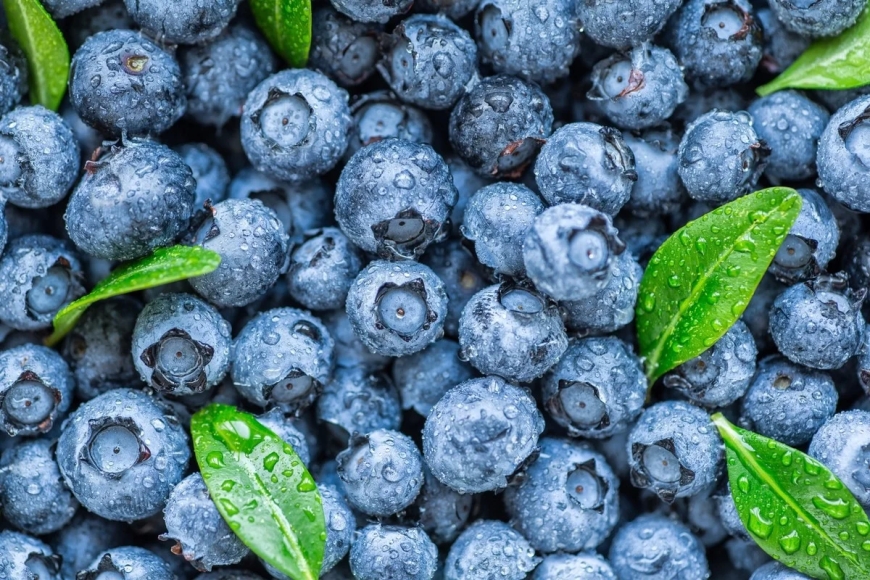Blueberries vs. other berries: nutritional comparison
Blueberries vs. other berries: nutritional comparison

Berries are nutrient-dense and delicious, making them an excellent addition to any diet; each kind offers unique health benefits. Blueberries, in particular, have gained popularity as a superfood due to their high nutritional content. Still, how do blueberries compare to other berries like blackberries, raspberries, and strawberries? This comparison examines the nutritional differences, health benefits, and best uses for three well-known berries.
Why berries are great for health
Berries are rich in antioxidants, low in calories, and high in fiber. These compounds promote overall health, help defend your cells, and reduce inflammation. Blueberries, like other berries, include anthocyanins, the antioxidant responsible for their vibrant colors, which can aid in lessening the risk of cardiovascular disease and cognitive decline.
Nutritional comparison of popular berries
Each fruit has a unique nutritional profile. Blueberries are different from strawberries, raspberries, and blackberries in various respects.
Blueberries
Blueberries are widely regarded as having high antioxidant levels. They are also an excellent source of manganese, vitamin C, and vitamin K. Blueberries are also abundant in fiber, making them beneficial for blood sugar management and digestion.
One cup of blueberries provides:
-
Calories: 84.
-
Calories: 84.
-
Vitamin C: 24% of RDI, the recommended daily intake.
-
K: 36 percent of the RDI.
Strawberries
Strawberries have one of the greatest concentrations of vitamin C and have fewer calories than blueberries. Furthermore, high folate levels are required for tissue formation and cell function.
Only one cup of strawberries provides:
-
Calories: 49.
-
Fiber: 3 grams.
-
Vitamin C: 149% of the RDI.
-
Folate: 9% of the RDI.
Raspberries
Raspberries are ideal for improving digestive health due to their high fiber content. They are also rich in manganese, vitamin C, and other antioxidants.
Only one cup of raspberries provides:
-
Calories: 64.
-
Eight grams of fiber.
-
Vitamin C: 54% of the recommended daily intake comes from here.
-
Manganese accounts for 41% of the RDI.
Blackberries
Blackberries and raspberries have similar fiber and antioxidant levels. They have a high concentration of vitamins C and K in addition to manganese.
Only one cup of blackberries provides:
-
There are 62 calories.
-
Fiber: 7.6 g.
-
Vitamin C: 50% of the recommended daily intake.
-
K: 36 percent of the RDI.
Health benefits of blueberries compared to other berries
Although each fruit has unique health benefits, blueberries stand out for their high antioxidant content. Blueberry anthocyanins have been linked to reduced oxidative stress, improved cognition, and cardiovascular health.
One study, for example, discovered eating blueberries may improve cognitive abilities and memory. Blueberry fiber can also aid digestion and blood sugar regulation. When it comes to berries, blueberries are often the first pick for increasing overall health due to their high nutritional value.
Blueberries’ unique properties
Blueberries not only offer a robust nutritional profile but also provide versatility in culinary use. Their naturally sweet taste and low-calorie count make them ideal for snacking, baking, and smoothies. Additionally, for those interested in learning more about the weight of fresh blueberries, a liter of blueberries weighs approximately 500 grams, a useful tip for recipe planning and storage.
How to enjoy blueberries and other berries
Including a variety of berries in your diet will help you maximize their health benefits. Blueberries are ideal for breakfast items such as yogurt and oatmeal, or they can be eaten raw as a refreshing snack. Blackberries, raspberries, and strawberries add vibrant flavor and texture to smoothies, salads, and desserts. Experimenting with various berries will enhance the flavor and nutritional value of your food.
Conclusion
Each blueberry and other berry provides unique nutrients and health benefits. Although blueberries are the most antioxidant-rich, other berries, such as blackberries and raspberries, are high in fiber; strawberries are high in vitamin C. Combining these berries into your diet provides a number of benefits for your immune system, digestive system, and heart health.
What's Your Reaction?

























